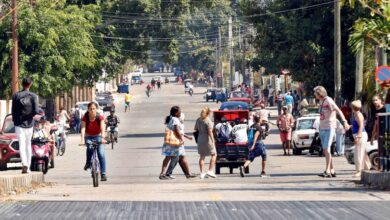AfD: the rise of the far-right of Germany
AfD is populist, euro-skeptic, anti-refugee, and some even call them racist and xenophobe

Alternative für Deutschland (Alternative for Germany) is the most notorious rightwing party in Germany. Right now, they are represented in 13 out of the 16 federal states’ parliaments. They also got 24% of votes in Saxony-Anhalt and near 21% in Mecklenburg-Western, both in the former German Democratic Republic.
Alice Weidel, their chancellor candidate, is a 38-year old woman with a PhD in Economics, is a lesbian, and has 2 children. She worked in Goldman Sachs, is multilingual, and used to live in the USA and China. Weidel is the pretty face with whom the party is trying to win the votes of the moderate electorate.
The polls shown that AfD would receive less than 10% of the votes; the right-wing group stands in fourth place, just behind Die Linke, a left-wing party, Merkel’s CDU and Schulz’s SPD. This represents an increase in comparison with the 2013 elections, where AfD acknowledged 4.1% of the votes and no representations in parliament. With the today’s vote intension, AfD will have around 64 seats in the Busdestag.
Leer en Español: AfD: la ultra derecha alemana
Alternative for Germany is euro-skeptic; they want to decentralize back the power to the European nations. They are very close to the electorate who voted in favor of Brexit in the UK. This is why Nigel Farange, one of the most popular euro-skeptics in Britain, partook in a rally of the party.
The darker side of this political party is its relationship with neo-nazis groups. Beatrix von Storch, the granddaughter of Hitler’s finance minister, is one of their leaders. They are also associated with the anti-immigration movement, Pegida. AfD tries to distance themselves from them, but it hasn’t been easy.
The German Federal election will be held on September 24th. The polls show a clear victory of the current chancellor’s political party, Angela Merkel, but she will need to ally with others to gain absolute majority to then be re-elected.
Latin American Post | Santiago Gómez Hernández
Copy edited by Susana Cicchetto





